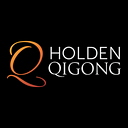Five Life Lessons from the Tao Te Ching
Have you ever discovered an important life lesson that forever changed how you live? Perhaps, the lesson was about relationships, your health, or what you value in the world. There are many different ways that such lessons can come to you, and one of these is through reading.
The Tao Te Ching is an ancient Chinese text that holds immense wisdom. And although it was written several thousands of years ago, its lessons are as relevant as ever in the modern world. This blog discusses five important life lessons that the Tao Te Ching offers.
1. Words Only Point To Reality.
One of the first lessons in the Tao Te Ching concerns the nature of words. In the opening verse, the text reminds us that words only point to reality. They aren’t reality themselves.
It may seem ironic to see this statement in a text, since texts communicate using… well, words. However, by establishing this important lesson right at the beginning, the Tao Te Ching invites the reader to look beyond language when seeking to grasp the true essence of things. All language can do is provide a rough road map, but it’s up to the individual to look around and see the path for themselves.
This lesson is important because it prompts us to seek a true understanding of things as opposed to accepting surface-level depictions of reality. Instead of relying solely on what others tell us, we can instead embrace our own felt experience of the world we live in.
2. Let Go Of Your Assumptions.
The previous point about words leads to another important lesson from the Tao Te Ching. Each individual should make a point to let go of unhelpful assumptions and expectations.
In modern life, the world is full of assumptions and expectations about how you should live, and even how you should be. There are conventions that try to influence your work life, relationships, gender roles, gender identity, sexuality, and every other aspect of you.
Although these assumptions and expectations may seem overwhelming at times, it’s important to remember that they don’t actually hold any real truth or value. Rather, most assumptions and expectations are socially constructed, and not a reflection of some higher, ultimate truth.
It can be challenging work to cast off unhelpful, socially constructed assumptions, but it can lead to immense liberation. The Tao Te Ching reminds us to cultivate our own connection to truth, rather than let anyone else try to tell us how things are or who we should be.
3. Stay In The Present Moment.
Just as the Tao Te Ching reminds us not to get too attached to words, it also encourages us not to dwell too heavily on our thoughts. Like words, our thoughts are not reality. Reality can only be found in one place — the present moment.
When we let go of our thoughts and return to the here and now, we’re able to connect to the true essence of the universe. With a quiet mind, we can really feel and see things clearly. This enables us to enjoy direct experiences with the world and cultivate the wisdom that it offers.
4. Cultivate A Strong Relationship With Nature.
Nature tends to calm the mind and helps us see things clearly. It is also pure and full of wisdom.
Spending time in nature consistently can go a long way to helping us live a healthy and fulfilled life. Unlike many other places, nature doesn’t bombard us with false assumptions about who we are or what’s important. It doesn’t cast judgment or tell us what we should think. Instead, it simply exists in all its beauty, gently inviting us to look closely to see the true existence of things.
Cultivating a strong relationship with nature helps us establish a strong, direct connection to our truth. Instead of being easily swayed by the whims and influences of others, we can find guidance through our own relationship with the Tao. Also, nature offers a wellspring of energy and vitality, helping us live rich and healthy lives.
5. Keep Your Body Supple.
Just as it’s important to cultivate a strong connection to nature, it’s also important to maintain a strong connection to our physical body. Movement helps us stay present and connected. Not moving, on the other hand, leads to stagnation and ailment.
To keep your body supple, it’s important to engage in a variety of physical activities. For example, don’t only lift weights or go on runs. While such activities may be great for strengthening or cardiovascular conditioning, they may cause you to lose flexibility over time, which can increase your risk of injury.
Practicing Qi Gong is a great way to integrate a variety of different movement exercises. By blending strengthening exercises, stretching movements, and flowing practices, you’re able to cultivate suppleness in just the right way. Not to mention, Qi Gong is a wonderful practice for releasing stress and connecting to your deepest truths.
If you’re interested in learning Qi Gong practices that can help you channel the Tao Te Ching’s lessons into your own life, be sure to check out our Free Two-Week Qi Gong Trial.
